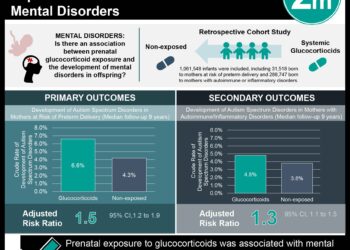USPSTF finds inconclusive evidence for routine iron screening and supplementation in pregnancy
1. From a systematic review, iron supplementation may improve maternal hematologic indices.
2. The clinical significance of iron supplementation on maternal or fetal health outcomes remains unclear.
Evidence Rating Level: 2 (Good)
Study Rundown: Iron deficiency is frequently found in pregnant women in the US and is a leading cause of anemia in pregnancy. Previous studies have suggested an association between iron status and negative perinatal outcomes, but further trials have had inconsistent results. In 2006, the US Preventive Services Task Force (USPSTF) recommended routine screening for iron deficiency anemia (IDA) with a fair-quality evidence-based recommendation, but the evidence for routine supplementation for non-anemic pregnant women was insufficient. This current review re-examined the effectiveness of routine supplementation and screening for IDA in pregnancy. New trails have demonstrated that iron supplementation may improve maternal hematologic indices and reduce the risk of IDA, but the clinical significance of these results on maternal and fetal health outcomes is unclear. The review was limited in that studies included had high methodological heterogeneity, and the generalizability of the data was restricted by small sample sizes and data from international populations. Overall, further studies will be necessary to assess the effects of routine iron supplementation and iron screening on both maternal and infant clinical health outcomes.
Click to read the study, published today in The Annals of Internal Medicine
Relevant Reading: American College of Obstetrics and Gynecology recommendation on anemia in pregnancy
In-Depth [systematic review]: Twelve studies of good or fair quality were identified that addressed the effects of routine prenatal iron supplementation. For maternal clinical outcomes, one study showed no clear difference in quality of life was identified between groups receiving iron supplementation and those receiving placebo. The effect of iron supplementation on rates of cesarean delivery was inconclusive across five studies. Infant clinical outcomes were reported in eleven of the studies and included mortality, length of gestation, pre-term delivery, gestational size and weight, and Apgar scores. No clear effect of prenatal iron supplementation on any infant outcomes was noted, although all studies reported improvement in maternal hematologic indices after supplementation. Due to heterogeneity across studies, meta-analysis was not performed for all outcome measures.
Image: PD
©2015 2 Minute Medicine, Inc. All rights reserved. No works may be reproduced without expressed written consent from 2 Minute Medicine, Inc. Inquire about licensing here. No article should be construed as medical advice and is not intended as such by the authors or by 2 Minute Medicine, Inc.







